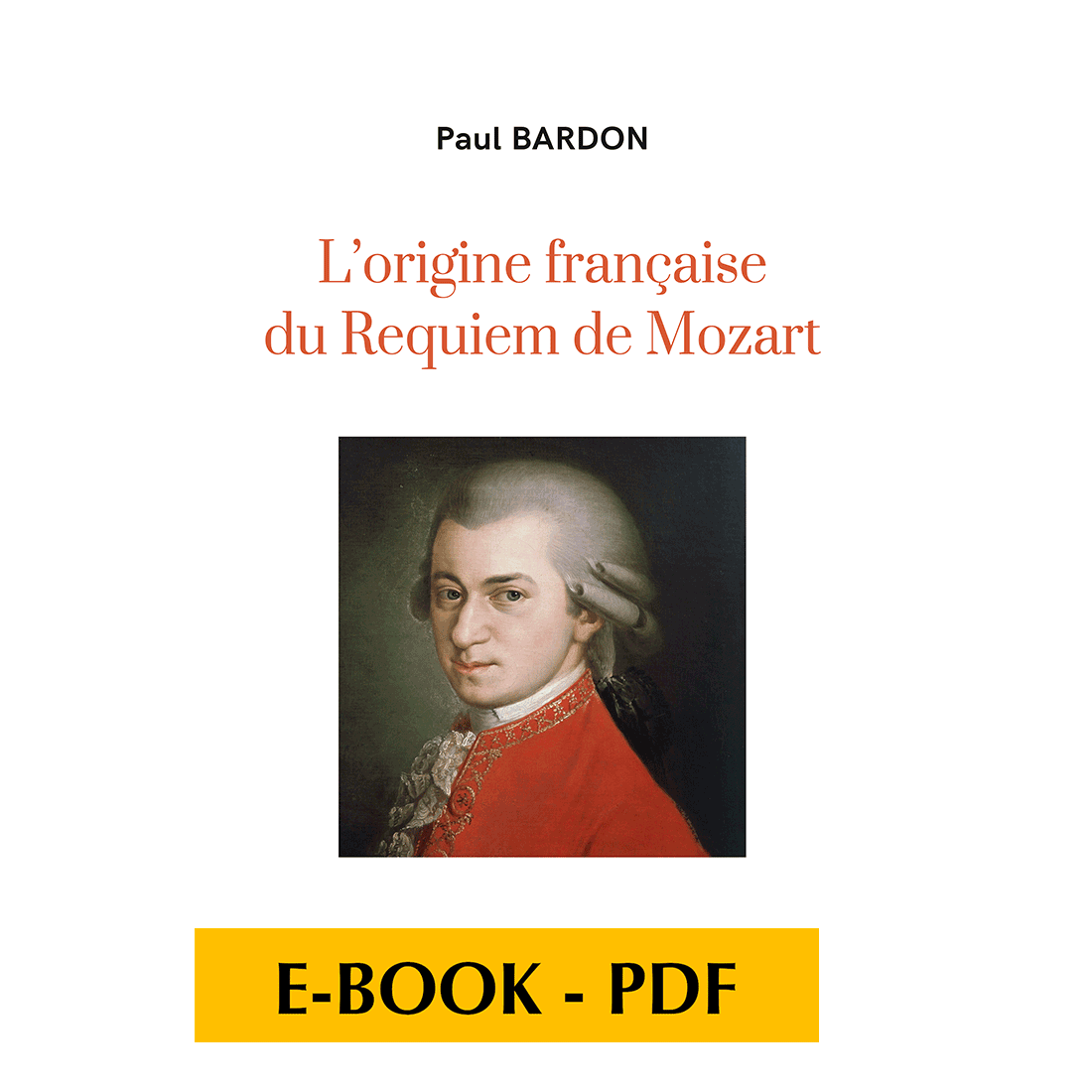According to the author's conviction, in his Requiem, Mozart constantly quotes the Faux-bourdon of the Parisian Dies irae heard at his mother's funeral in the church of Saint-Eustache in 1778. According to Paul Bardon, there is a very precise correspondence between this Mass of the Dead and Mozart's masterpiece. For the author, the Faux-bourdon of the Dies irae is constantly quoted in the ultimate work of the Master and taken up again in many keys. In 1953, Paul Bardon was a member of the pupil group of small sopranos of the cathedral of Angers who had to interpret, frequently, in Gregorian, the chants of the Mass of the Dead in their entirety. Later, as head of liturgical music in two Parisian churches, he conducted Mozart's Requiem many times. One evening in May 2001, the author understood, as if in a flash, that there was a secret link between the Faux-bourdon of the Dies irae and the Mozart Requiem. By exploring the two works, he discovers that it is not seven notes but twenty-five notes of the Faux-bourdon that frequently recur in the Requiem and this is for him the beginning of a new approach to the masterpiece. But it is necessary to understand how the Faux-bourdon of the Dies irae works and to deepen Mozart's personal reading of it. It is then that fate comes to the author's aid, by other means. Through a very precise demonstration, the author will also prove that Süssmayr, a student of Mozart, did not compose the end of the work, according to popular belief, but simply transcribed it.
L'origine française du Requiem de Mozart - E-book PDF
Material :
Book - E-book PDF
Language :
French
Date of publication :
2021
Code EAN :
9782752142184
Output format :
E-book PDF
Category :
Musicology - Analysis
File size :
1,90 Mo




